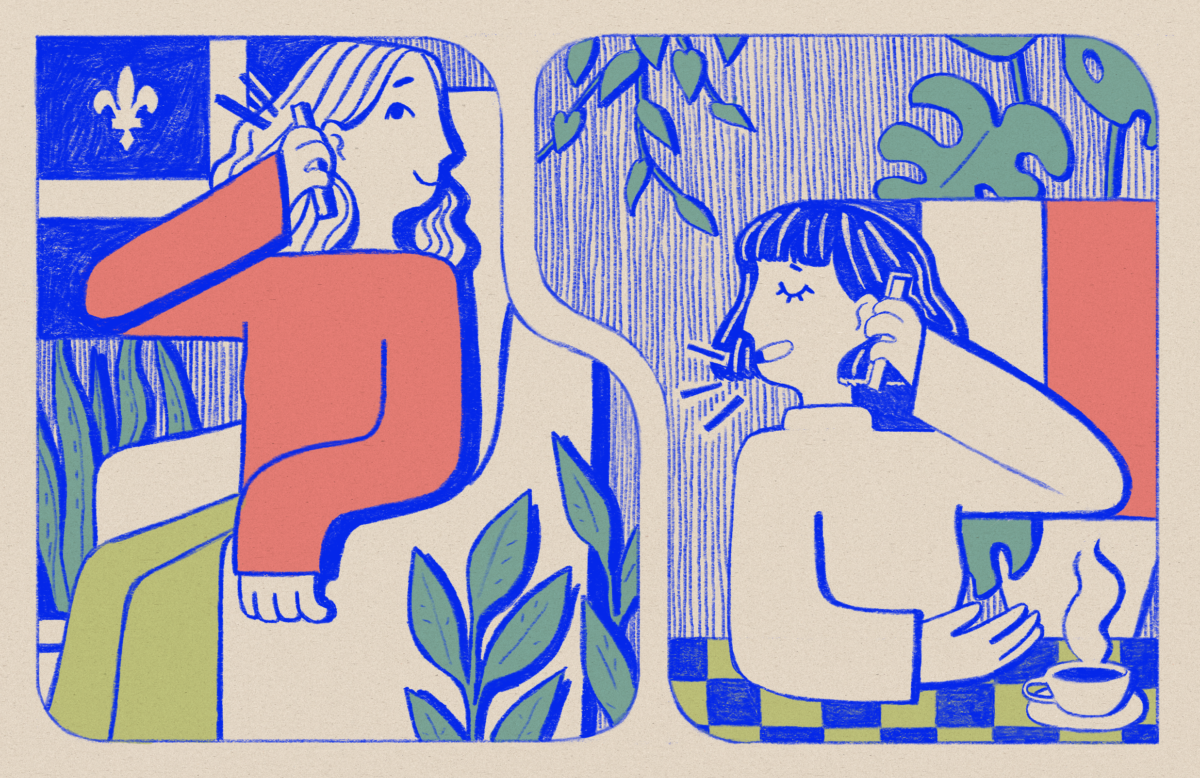Originally from France, Pauline Lazarus sheds light on the cultural differences in the dating lives of French people and Quebecers.
After two months and 10 dates, Ben was convinced he was in a serious relationship. It was to his surprise when he learned he was only considered a friend.
Pauline Lazarus launched the podcast Une Histoire à part earlier this year, where she invites francophone people to discuss cultural differences between dating customs in France versus Quebec.
Ben was one of the first guests of the podcast.
“I go out with a guy once, twice, I let myself go up to three times, but by the third time I can tell if I like him enough to have feelings,” Ben, who wanted to stay anonymous, said on the podcast.
When he arrived in Montreal and started dating, Ben quickly understood what it is like to date someone from a different cultural background.
“After kissing a French person, the French consider themselves a couple whereas, for the Quebecers, it is really not the case,” said Noé Klein, a Ph.D. student in sociology at the Université du Québec à Montréal. Klein’s research involves examining friendly and loving relationships between French and Quebecers.
Already friends before the podcast, it was Ben’s story about coming out in Montreal that inspired Lazarus to create Une Histoire à part. She realized that people across the city have all kinds of stories to share about their dating life.
Lazarus plans to release one episode bi-weekly and sees it as a personal challenge that brings her closer to her lifelong dream to work in radio.
“When we move to a city, we’re not all running away from something, but maybe we’re all looking to be a better version of ourselves,” Lazarus added.
Not interested in the number of listeners, she is grateful if her podcast can help people by advising on adaptation and cultural differences by showcasing stories like Ben’s, who explained how Montreal helped him to come out to his family.
“When I came to Montreal, I felt free to be myself,” Ben said.
Lazarus came to Montreal five years ago on a Working Holiday Visa.
“I applied without much conviction, I must admit, because I had never talked about Canada in my life. I know that for a lot of people, it’s their dream, they’ve been waiting to come to Canada for several years. For me, it was not at all the case, it was really almost a coincidence,” she said.
Although she didn’t plan to stay longer than the two-year duration of her visa, after four years, Canada has become her home.
“I like to connect and exchange with people, and for me, that also means meeting people,” she said.
Since starting the podcast, Lazarus has met with different people and has noticed clear cultural differences.
“It’s true that even though we’re in Quebec where we speak French, we sometimes have the impression that it’s a bit like France. In the love life, here, it is a little different,” she said.
Lazarus said French people come to Montreal thinking they will be able to connect easily with Quebecers, but this is forgetting that they come from two different continents with an important cultural difference.
One of the most important differences between French people and Quebecers when it comes to dating is the status of “seeing someone” that comes before the discussion about becoming “official,” said Lazarus.
In his thesis, Ph.D. sociology student Noé Klein explains how the French have a vision of relationships that quickly develops towards becoming a couple, whereas Quebecers have this notion of “seeing someone,” a period when they enter an intimate relationship in which one person gradually gets to know the other.
“It takes more time for Quebecers to see themselves as a “couple” but when they do, it is something much more defined and committed than for the French, who have a blurrier definition of the term,” said Klein.
In Une Histoire à part, Lazarus introduces dating anecdotes in light of these differences for the listeners to avoid bad surprises.
In addition to the definition of “couple” itself, Lazarus discovered that for many, the openness of the city also leads to the openness of relationships.
“Montreal is a very open city, both culturally and in other ways,” Lazarus said.
Even though she no longer lives in France, she agrees that the trend of open relationships or poly-love is much more democratized in Montreal than in France.
Always eager to learn and welcome people, Lazarus likes to make people feel comfortable when they share their experiences.
On a late Sunday afternoon, Pauline Lazarus opens a bottle of champagne and places it on the coffee table before settling into her sofa. With two microphones and her recorder in hand, a discussion begins between two friends over a drink.
This was during the first episode of Une Histoire à part, where Lazarus invited Barbara Lopez to her apartment to talk about her personal dating experiences when she came to Montreal 10 years ago.
“The podcast is almost just a bonus, it really could have been only a discussion around a drink,” Lopez said.
Lazarus welcomes each guest to her cozy apartment to share their experiences in a place of trust.
“I don’t think I would have opened up as easily and felt as comfortable if it had been in a studio in the middle of the day, you know. I felt that I had the freedom to talk about whatever I wanted,” said Lopez.
Une Histoire à part brings together different points of view, different stories, and unites the francophone community around their dating stories.For more stories, you can find the podcast on Spotify or Apple Podcasts.
